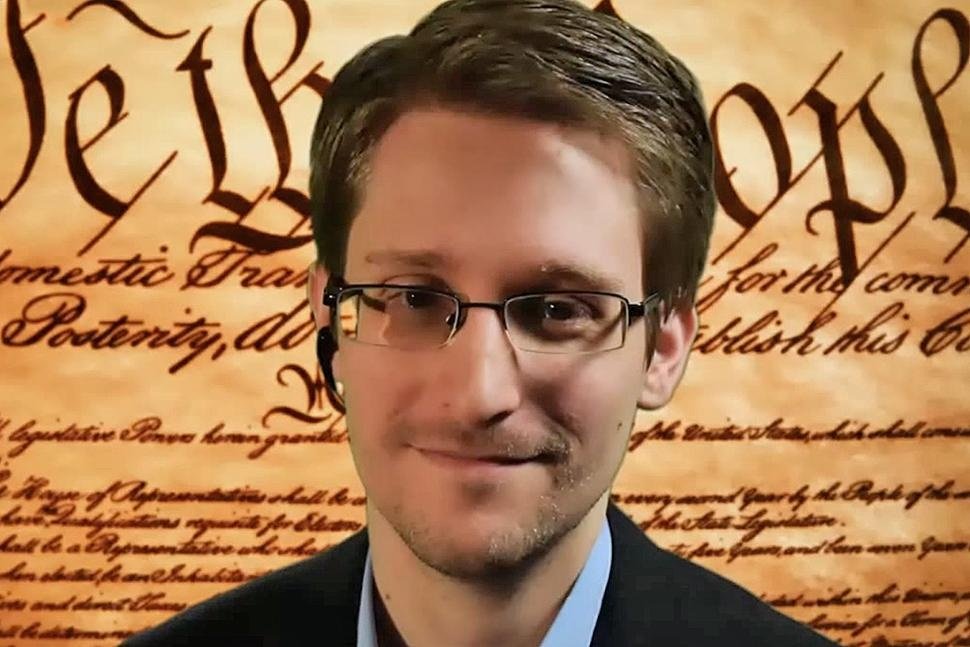Edward Snowden spoke before a packed auditorium of technology innovators via video link in Austin at the South by Southwest (SXSW) Interactive conference on Monday.
Global mass surveillance conducted by the US and other governments is “setting fire to the future of the internet”, he said.
He added: “You guys are all the firefighters, and we need you to help us fix this.”
The former NSA contractor, who fled the US last year after leaking thousands of documents that revealed his employer’s extensive surveillance programs, spoke to the audience through a choppy Google Hangout video connection running through multiple proxy servers to conceal his location.
Although Edward Snowden has granted a handful interviews to the media since his revelations made global headlines and led to his seeking asylum in Russia, it was one of his first live appearances before a general audience.
During his one-hour session moderated by his lawyer, Ben Wizner of the American Civil Liberties Union (ACLU), Edward Snowden urged internet and computing experts to design and produce encrypted communication technology that the average user can use.
Often delving into the technical details of internet security, calling it “defense against the dark arts in the digital realm”, he said the systems currently available, if used by the general public, would make NSA bulk surveillance programs much more difficult.
Edward Snowden also denounced what he saw as a change in US priorities since the September 11, 2001, terrorist attacks, focusing on breaking communication security rather than protecting information.

“When you are the one country in the world that is sort of a vault that is more full than anyone else, it doesn’t make sense for you to be attacking all day rather and never defend your vault,” he said.
He also criticized the NSA’s mass data collection system as being ineffective and a waste of resources. Instead, he said, the agency should be focusing on the type of people who present a threat.
Edward Snowden cited Boston Marathon bombing suspects Dzhokhar Tsarnaev and his brother Tamerlan as individuals the government might have been able to catch if they had directed resources in the right areas.
“We spent all this money, we spent all this time hacking into Google’s and Facebook’s back end to look at their databases,” he said.
“What did we get out of that? We got nothing.”
Edward Snowden received a warm reception from the audience, and the question-and-answer session included words of praise in an email from internet pioneer Sir Tim Berners-Lee, who said his actions were “profoundly in the public interest”.
His appearance was not without critics, however. Congressman Mike Pompeo of Kansas wrote an open letter to the conference’s organizers on Friday, urging them to deny the NSA leaker a public platform to air his views.
Edward Snowden’s “only apparent qualification”, he writes, “is his willingness to steal from his own government and then flee to that beacon of first amendment freedoms, the Russia of Vladimir Putin”.
At the start of the session, Ben Wizner, who serves as Edward Snowden’s legal advisor, replied that although freedom of expression protections are generally stronger in the US than in Russia, “if there’s one person for whom that’s not true, it’s Ed Snowden”.
If Edward Snowden were still in the US, he said, he’d probably be held by the government in solitary confinement.
Edward Snowden’s session is the latest event in a technology conference that has been dominated by talk of internet security, government surveillance and privacy rights.
In his final question, Edward Snowden was asked to assess the importance of his revelations.
“Regardless of what happens to me, this is something we had a right to know,” he said.
“I took an oath to support and defend the constitution, and I saw the constitution was violated on a massive scale.”
[youtube CPrDqoaHHSY 650]
